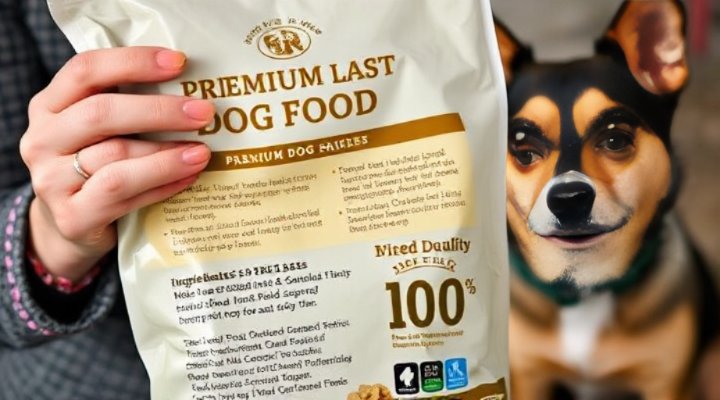When it comes to our furry family members, nothing is more important than their health and wellbeing. Choosing the best dog food is one of the most crucial decisions you’ll make as a pet owner. After all, proper nutrition affects everything from your dog’s energy levels to their coat quality, and even their lifespan.

Understanding Your Dog’s Nutritional Needs
Dogs, like humans, have specific nutritional requirements that change throughout their lives. Puppies need different nutrients than senior dogs, and large breeds have different needs than small breeds. For instance, large breed puppies require carefully balanced calcium and phosphorus levels to support proper bone development without growing too quickly.
According to the American Veterinary Medical Association, a complete and balanced dog food should contain:
- High-quality protein (from animal sources)
- Healthy fats
- Digestible carbohydrates
- Essential vitamins and minerals
- Appropriate moisture content

Types of Dog Food: Pros and Cons
Dry Kibble
Dry food is convenient and helps maintain dental health through mild abrasion. However, not all kibble is created equal. Look for brands that list whole meat sources (like chicken or beef) as the first ingredient rather than meat by-products or fillers.
Wet Food
Canned food is more palatable for picky eaters and provides additional hydration. It’s particularly good for dogs who don’t drink enough water, but it can be more expensive and less convenient than dry food.
Raw Diets
Raw feeding has gained popularity, with proponents claiming benefits like shinier coats and cleaner teeth. However, the FDA cautions about potential bacterial contamination and nutritional imbalances if not properly formulated.

Life Stage Nutrition
Just as you wouldn’t feed a baby the same food as an adult, dogs need different nutrition at various life stages. Our article on best dog breeds for first-time owners includes nutrition tips specific to different breeds.
Puppy Food
Puppies need more calories, protein, and certain nutrients like DHA for brain development. Special puppy formulas provide these in appropriate amounts.
Adult Maintenance
Most dogs do well on a high-quality adult formula from about 1 year to 7 years, depending on breed size.
Senior Formulas
Older dogs often benefit from lower-calorie foods with joint-supporting ingredients like glucosamine. Senior formulas also tend to be more digestible.

Reading Dog Food Labels Like a Pro
Understanding how to read pet food labels is crucial for choosing the best dog food. Here’s what to look for:
- The AAFCO statement ensuring complete and balanced nutrition
- Named protein sources as first ingredients (e.g., “chicken” not “meat”)
- Appropriate fat content (usually 10-15% for most dogs)
- Limited fillers like corn, wheat, or soy
- No artificial colors or preservatives
For more training-related tips, check out our guide on dog jumping training which includes nutrition advice for active dogs.

Special Dietary Considerations
Some dogs have unique nutritional needs due to health conditions:
Weight Management
Overweight dogs benefit from high-fiber, lower-calorie foods that help them feel full while consuming fewer calories.
Food Allergies
Common allergens include beef, dairy, wheat, and chicken. Limited ingredient diets or novel protein sources can help.
Joint Health
Foods with added glucosamine, chondroitin, and omega-3 fatty acids support joint health, especially in large breeds.
Remember, any diet change should be gradual over 7-10 days to avoid digestive upset. For more on transitioning foods, see our pet training ultimate guide which includes nutrition transition tips.
Related Keywords
dog nutrition guide, premium dog food brands, homemade dog food recipes, grain-free dog food, small breed dog food, large breed puppy food, senior dog nutrition, dog food allergies, weight management dog food, organic dog food options
